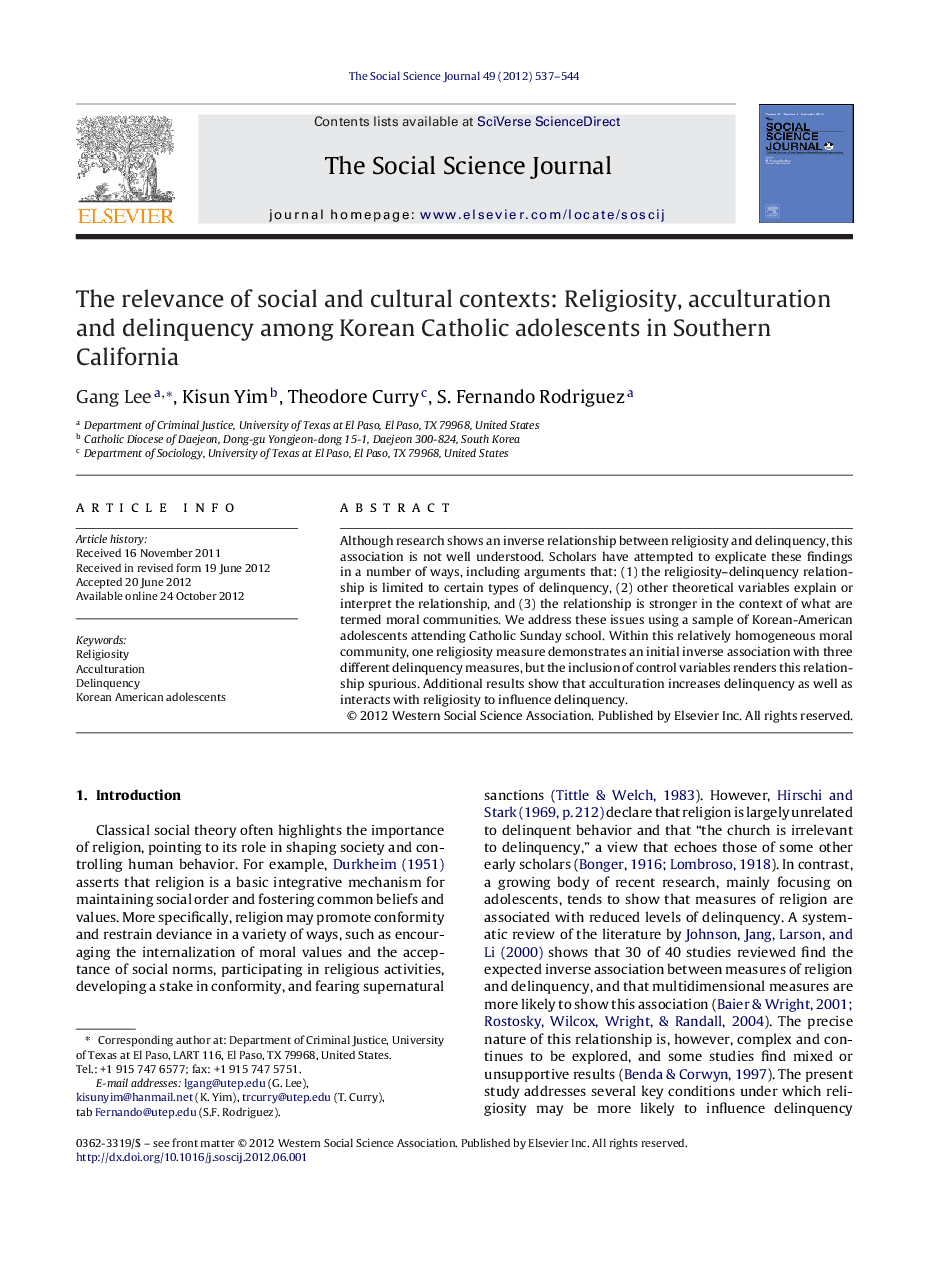| Article ID | Journal | Published Year | Pages | File Type |
|---|---|---|---|---|
| 140230 | The Social Science Journal | 2012 | 8 Pages |
Although research shows an inverse relationship between religiosity and delinquency, this association is not well understood. Scholars have attempted to explicate these findings in a number of ways, including arguments that: (1) the religiosity–delinquency relationship is limited to certain types of delinquency, (2) other theoretical variables explain or interpret the relationship, and (3) the relationship is stronger in the context of what are termed moral communities. We address these issues using a sample of Korean-American adolescents attending Catholic Sunday school. Within this relatively homogeneous moral community, one religiosity measure demonstrates an initial inverse association with three different delinquency measures, but the inclusion of control variables renders this relationship spurious. Additional results show that acculturation increases delinquency as well as interacts with religiosity to influence delinquency.
► We address the religiosity–delinquency relationship is limited to certain types of delinquency. ► Religiosity demonstrates a moderate inverse association with three different delinquency measures. ► However, the inclusion of control variables renders this relationship spurious. ► The effect of Korean culture by testing whether acculturation interacts with religiosity to influence delinquency. ► Finding support for this relationship for one of the three delinquency measures.
